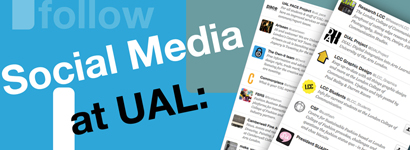Have we the right balance between open education and commercial social media?
More and more universities seem to be promoting the use of commercial social media sites in the curriculum, mostly for communication and rich media sharing, could this present problems in the future? Its clear the university IT frameworks and ambitions are no match in the commercial social media world. Are universities interested in questioning or exploring social media use in education and are they researching how to create their own in-house or sector social media platforms for the content management of files, communities, images, online video archives etc. If the answer is no then this would mean universities are starting to rely solely on external commercial channels as their primary platform for building valuable communities of practice or archiving and sharing content. See iTunes Ual ? (Commercial media channels really should be secondary channels not primary)
 This article gives a good perspective on when Second life and Ning changed their terms End of education in Second Life? and this latest news Instagram seeks right to sell access to photos to advertisers also shows the vulnerability of investing time, effort and content in commercial social media.
This article gives a good perspective on when Second life and Ning changed their terms End of education in Second Life? and this latest news Instagram seeks right to sell access to photos to advertisers also shows the vulnerability of investing time, effort and content in commercial social media.
Commercial media channels really should be secondary channels not primary and we should always have an exit strategy. This happened to me last year when I set up a site in NING for my arts studios. We established a good community of well over a 100 users and we then had to stop using the NING site because it was too expensive which meant starting all over again. NING made it easy enough to copy and take the content but the biggest loss and one that could not easily be transferred was the community.
 I’m a big fan of social media commercial channels but I don’t think colleges should be asking students and staff to use specific channels, especially if they don't want to be in facebook or Instagram, the same goes for content we should not be putting all our video, images, files etc (eggs) into one commercial basket, all this rich media content produced by the institution should be made available and accessible at all times to everyone and be free from commercial fees, conditions and advertising.
I’m a big fan of social media commercial channels but I don’t think colleges should be asking students and staff to use specific channels, especially if they don't want to be in facebook or Instagram, the same goes for content we should not be putting all our video, images, files etc (eggs) into one commercial basket, all this rich media content produced by the institution should be made available and accessible at all times to everyone and be free from commercial fees, conditions and advertising.
If institutions have their own in-house/sector wide social media archives and learning networks they could directly benefit from the communities built around them. In-house and commercial media channels can also be mutually beneficial, and if sometime in the future the institution wants to withdraw from a commercial platform they can without fear of being too tied into one host and losing that all important community.
So is the recent news of 'UK universities in online launch to challenge US' any different? Do universities use the FutureLearn project as a primary or secondary channel?

To the extent possible under law, cfollows has waived all copyright and related or neighboring rights to this Work, Have we the right balance between open education and commercial social media?.



Comments
A third of poorest pupils 'without internet at home'
@suebecks: What are your rights on #Instagram, #Facebook, #Twitter & #Flickr? The Cheat Sheet http://t.co/0jogtuNL via @hopkinsdavid @simfin - http://m.fastcompany.com/?m=fastcompany/node/3004137&url=http://www.fastcompany.com/3004137/tos-cheat-sheet-instagram-facebook-twitter-flickr
Germany orders changes to Facebook real name policy
http://www.bbc.co.uk/news/technology-20766682